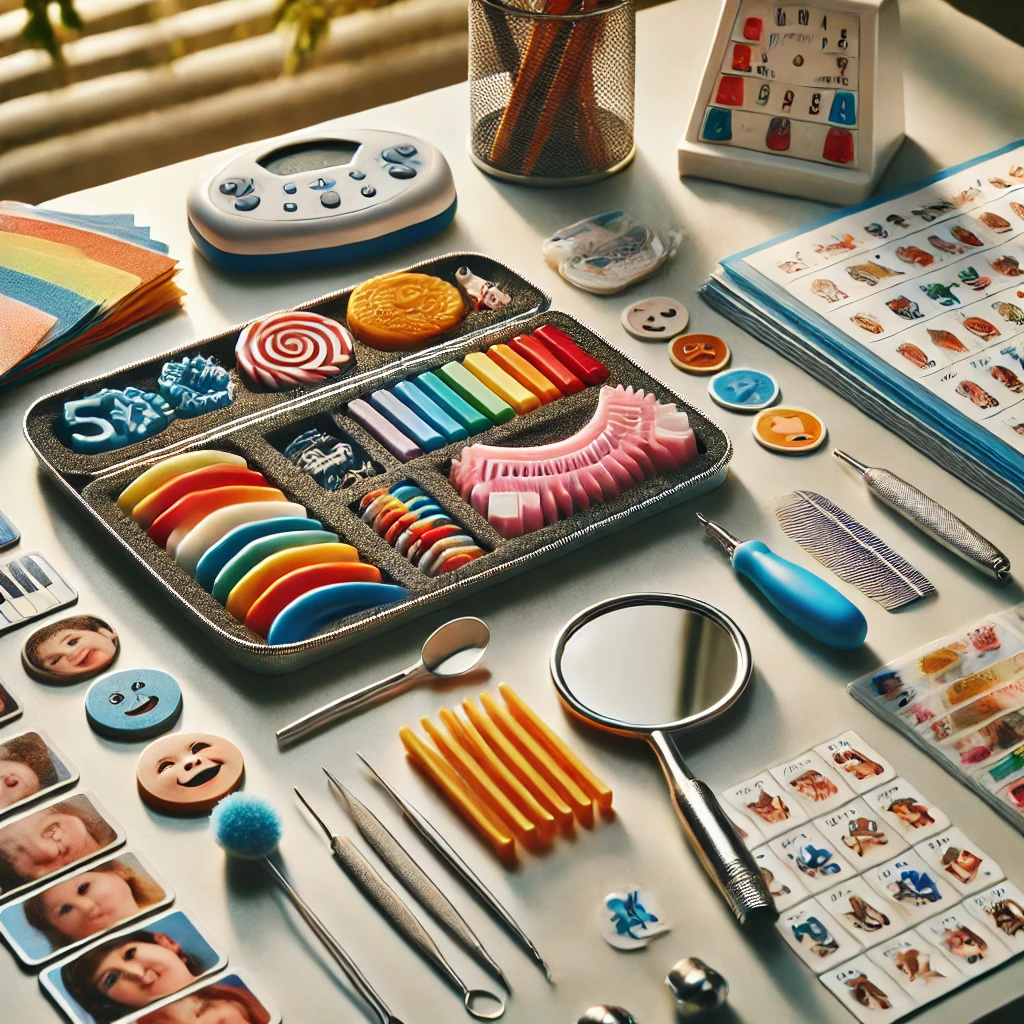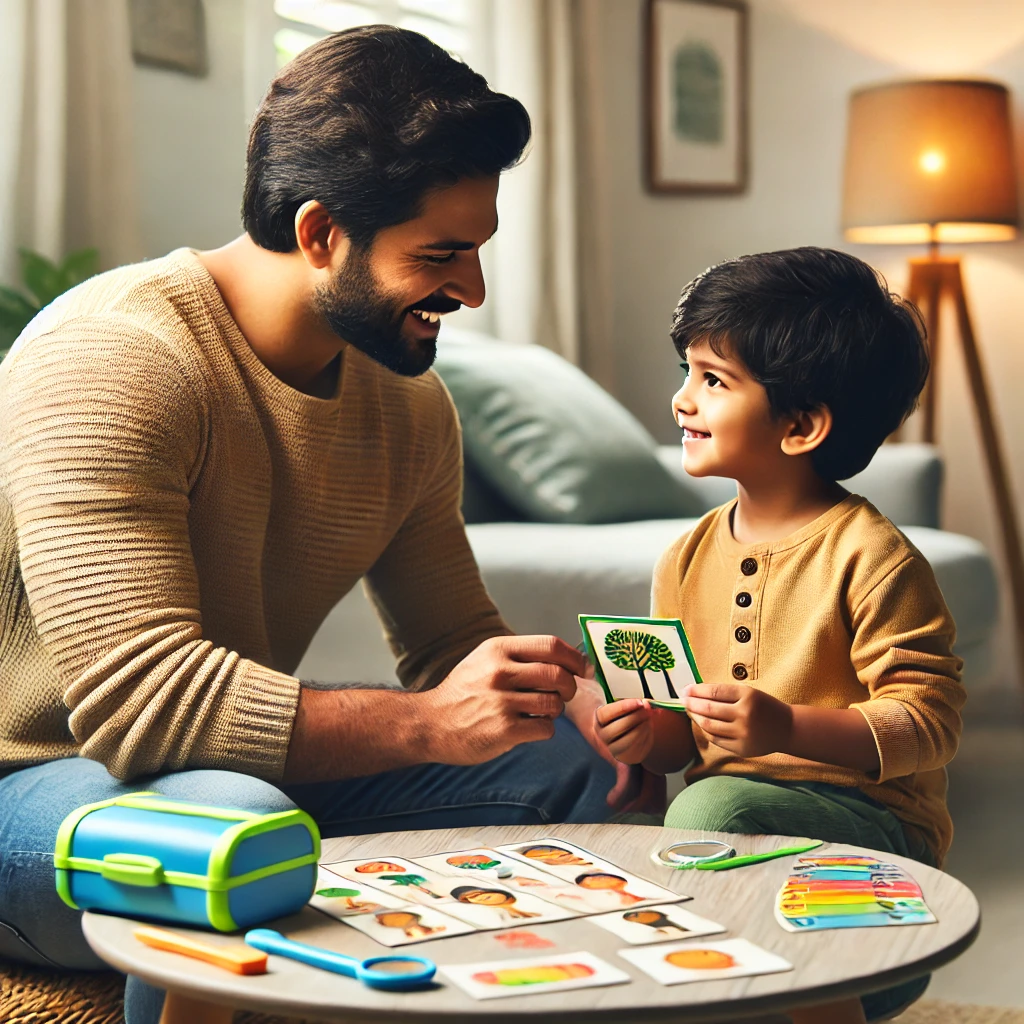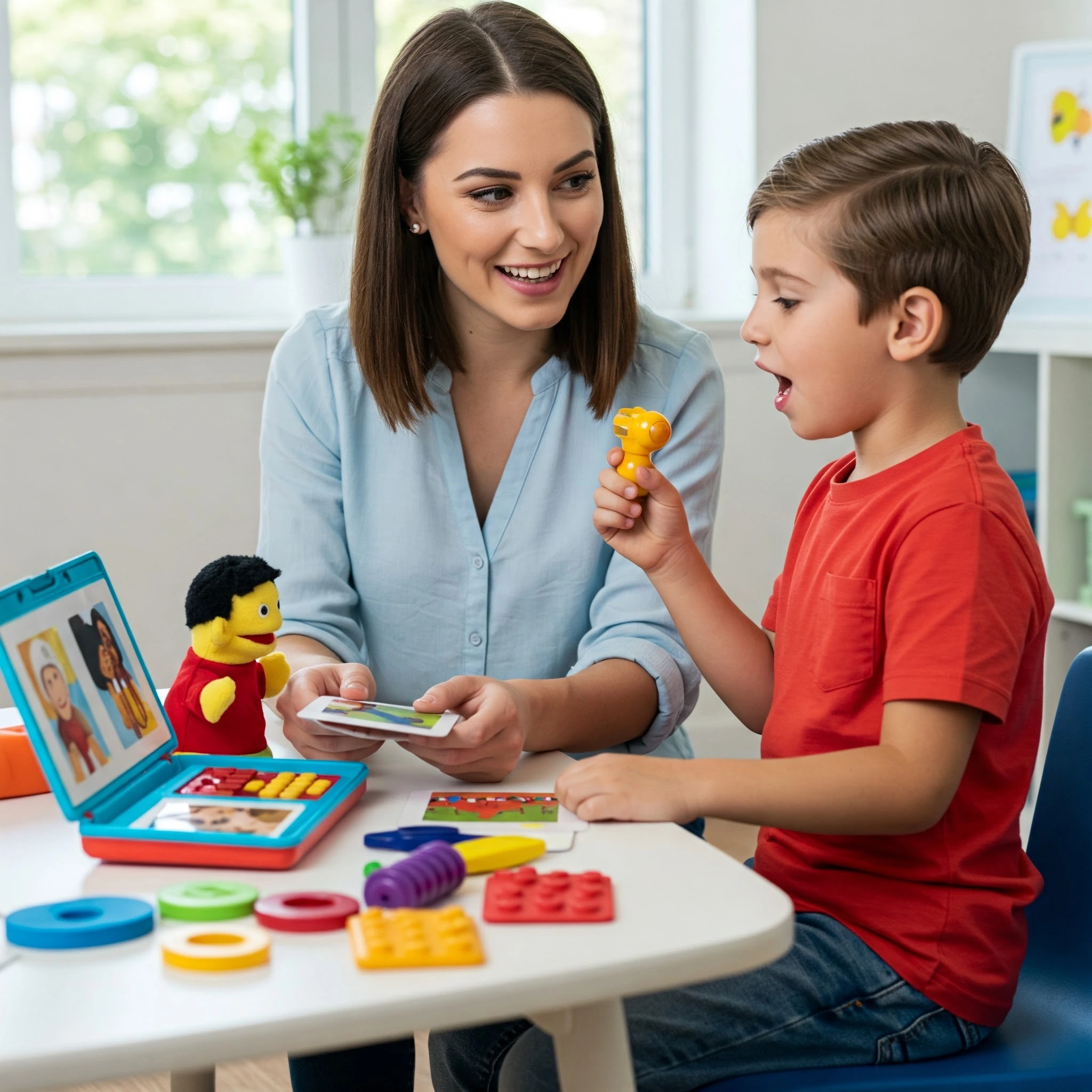Table of Contents
Speech Therapy Kit: What Is It & Why Do You Need One?
A speech therapy kit constitutes a collection of tools and resources intended to aid individuals with speech and language disorders. I advocate for its use. Why? Because effective communication is paramount. Imagine the effort involved in explaining a complex notion, only to find that the words escape you. It can be quite exasperating, wouldn't you say? This is a frequent challenge for many individuals. A well-assembled speech therapy kit addresses this. It provides structured support, allowing for targeted practice. It is more than just a set of items. It is a pathway to improved articulation, language comprehension, and social interaction. So, why do you need one? To open doors to clearer communication and a better quality of life.
Must-Have Tools in a Speech Therapy Kit
A well-equipped speech therapy kit must contain specific tools to support effective intervention. Here's a breakdown:
- Articulation Cards: These cards feature images and associated words, aiding in the practice of accurate sound production. They are foundational for addressing articulation disorders.
- Mirrors: A simple yet powerful tool. Mirrors allow individuals to observe their oral motor movements, enhancing self-awareness and facilitating corrective adjustments.
- Oral Motor Tools: Items such as whistles, straws, and tongue depressors are essential for strengthening the muscles involved in speech production. These tools address motor planning and coordination.
- Visual Aids: Picture communication symbols and other visual supports are critical. They assist individuals with expressive language difficulties, enabling them to communicate effectively.
- Interactive Therapy Games: Games maintain patient engagement and promote language development in a stimulating manner. They offer a practical and enjoyable way to reinforce learned skills.

Choosing the Right Speech Therapy Kit for Different Needs
Speech therapy isn’t one-size-fits-all—and neither are the kits. Different individuals require different tools.
· For Children: Prioritize engaging materials. Bright colors, tactile elements, and interactive games are key to maintaining attention and fostering participation.
· For Adults: Focus on practical functionality. Tools that aid daily communication, such as picture cards for shopping or conversation starters, are most beneficial.
· By Specific Need:
- Articulation Difficulties: Emphasize sound-specific cards and oral motor tools.
- Aphasia: Concentrate on comprehension and word retrieval with picture dictionaries and sentence-building exercises.
Not sure what to choose? Always consult a speech-language pathologist (SLP). Their input can tailor the kit to individual needs and make therapy significantly more effective.
DIY vs. Pre-Made Speech Therapy Kits: Which One Works Best?
The question arises: homemade or store-bought? Let's break it down. DIY kits offer flexibility. You can select materials based on specific needs. Cost-effective? Sometimes. You might already own some items. However, time is a factor. Crafting materials, printing cards, and assembling everything takes effort. Effectiveness? That depends on your knowledge and skill.
Pre-made kits, on the other hand, provide convenience. They are professionally curated, often by speech-language pathologists. This means quality resources. Less time spent gathering materials. The drawback? Cost. They are typically more expensive than DIY options. Effectiveness? Generally higher, due to expert selection.
Consider this: a DIY kit might save money initially, but a poorly assembled kit can hinder progress, costing more in the long run. A pre-made kit offers structure and expert input. It can accelerate improvement, saving time and frustration. So, which works best? It hinges on your expertise, time, and budget. Here's a quick comparison:
| Feature | DIY Speech Therapy Kit | Pre-Made Speech Therapy Kit |
| Cost | Potentially lower | Higher |
| Time Investment | High | Low |
| Customization | High | Low to Moderate |
| Effectiveness | Variable | Generally Higher |
| Expert Input | None | High |
| Convenience | Low | High |
DIY Kits: Flexible and budget-friendly—but time-consuming. Great if you’re crafty and knowledgeable.
Pre-Made Kits: Curated by professionals, they’re structured, effective, and time-saving—albeit at a higher price point.
In conclusion, make your selection based on your level of expertise, the amount of time you can dedicate, and the seriousness of the speech issue at hand.

How to Use a Speech Therapy Kit for Maximum Results
To derive the greatest benefit from a speech therapy kit, adherence to structured practice is paramount. Consistent, daily sessions, even if brief, are more effective than infrequent, lengthy ones. A regular schedule should be established and maintained.
Initiate each session with warm-up exercises. Oral motor activities prepare the musculature for speech production. Subsequently, focus on targeted goals. Articulation cards should be utilized to address specific sound errors, and visual aids should be employed to expand vocabulary. Each session must be purposeful, avoiding aimless repetition.
Maintain engagement through varied activities. Therapeutic games and reward systems can enhance motivation. Acknowledging small advancements through positive reinforcement is essential. Progress should be documented to track improvements and adjust the intervention strategy as needed.
Professional consultation with a speech-language pathologist is strongly recommended. They can provide expert guidance, customize exercises, and offer feedback. Their insights are invaluable for understanding individual needs. Remember, the kit serves as a tool, and its efficacy is contingent upon its proper application.
What to Look for When Buying a Speech Therapy Kit
Purchasing a speech therapy kit? Do not just grab the first one you see. A few key elements determine its value. First, consider the materials. Are they durable? Safe? Especially if working with children, quality matters. Flimsy cards or poorly made toys will not last.
Next, think about the contents. Does it align with your specific needs? A kit heavy on articulation cards is less useful for someone with aphasia. Look for variety. A mix of tools addresses a wider range of issues.
Third, assess the clarity of instructions. Are the activities easy to understand? Can you implement them without a speech-language pathologist present? Clear, concise directions are essential for independent use.
Fourth, consider age-appropriateness. A kit for a toddler should not contain the same materials as one for a teenager. Visual appeal matters too. Engaging colors and designs can make therapy more enjoyable.
Finally, think about portability. Can you easily transport the kit? A bulky box is less practical for home visits or travel. A compact, organized kit allows for therapy on the go.
Best Speech Therapy Kits for Home & Professional Use
Navigating the market for a fitting speech therapy kit can feel like finding a needle in a haystack. But fear not, I've sifted through the noise to bring you some top-notch options.
- For Home Use: The "Language Builder" Kit:
- This kit shines for those seeking a comprehensive, user-friendly option. It boasts a wide range of picture cards, covering various vocabulary themes. The accompanying activity guide is clear and easy to follow. It's a solid choice for parents and caregivers.
- Pros: Diverse vocabulary, simple instructions, durable cards.
- Cons: Can be a bit pricey for some.
- For Children: The "Articulation Fun Pack":
- This kit emphasizes articulation practice through engaging games and activities. It features colorful, interactive materials that keep kids motivated. The included oral motor tools are also a plus.
- Pros: Highly engaging, excellent for articulation, good variety of activities.
- Cons: less vocabulary focused.
- For Professionals: The "Comprehensive Aphasia Therapy Set":
- Designed for speech-language pathologists, this kit tackles aphasia with a wide array of resources. It includes picture dictionaries, sentence-building materials, and cognitive exercises. It's a valuable asset for clinical settings.
- Pros: Very comprehensive, professionally curated, targets multiple aspects of aphasia.
- Cons: Higher price point, may be overwhelming for home use.
- For Versatility: The "Ultimate Speech & Language Toolbox":
- This kit is a solid middle ground. It incorporates tools for articulation, language, and cognitive skills. It is highly adaptable, making it suitable for a wide range of clients.
- Pros: Great versatility, wide range of tools, good for multiple needs.
- Cons: Can be bulky.
When selecting, remember to align the kit with the specific needs of the individual. Read reviews, compare features, and do not hesitate to consult with a speech-language pathologist for recommendations.
Contact us today to explore our recommended Speech Therapy Kits and begin your path to improved communication. [Contact Us].
Speech Therapy Tools & Resources
- Speech Therapy Activities and Printables
A wide collection of free articulation cards, language games, and visual aids.
Speech and Language Kids – Free Therapy Materials

